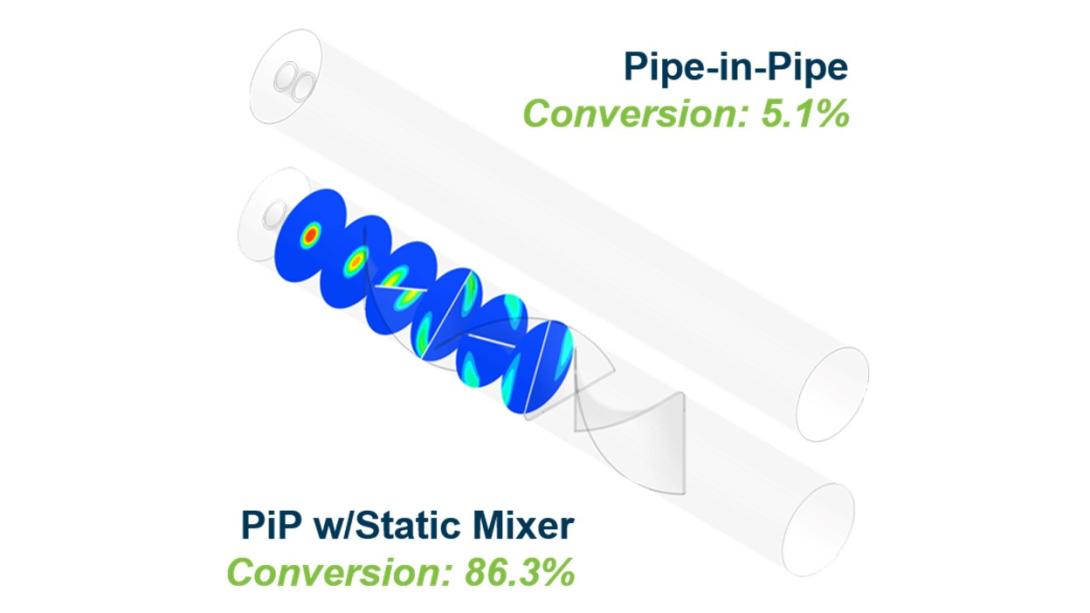Background: Specialty chemical manufacturing is dominated by batch processing mainly due to complex chemistries and narrow ranges of application. Batch processing is extremely inefficient because it is time-consuming and wasteful. The time required to fill the vessel, heat (or cool) the reactant mixture, and drain the product is considered downtime since no product is being produced. Batch processing is considered wasteful because any disturbances that cause the product to be off-spec can ruin an entire batch, forcing the producer to consider it waste. This RAPID project focuses on the production of Succinimide dispersants, which are a relatively large volume family of specialty chemical products that vary by molecular weight and structure.
Solution: To make the transition from batch to continuous operation, the University of Pittsburgh has partnered with Lubrizol Corporation and demonstrated the conversion of a batch chemical process to continuous operation. The focus of this project was to create an order of magnitude reduction in equipment size (and associated capital cost). The project has established a firm kinetic understanding of the chemistry and utilized a process-intensified static mixer reactor to achieve a more than 10-fold increase in conversion when compared to a pipe-in-pipe reactor in simulations and pilot plant. Current work includes further increasing the efficiency of the reactor through the use of a cavitation reactor, a PI technology that uses intentional cavitation bubbles to heat and mix the reactant solution.
Impact: Successful demonstration of a batch to continuous process in a commodity chemical process could open the doors for a broader shift to continuous processing in the fine/specialty chemical industries.

